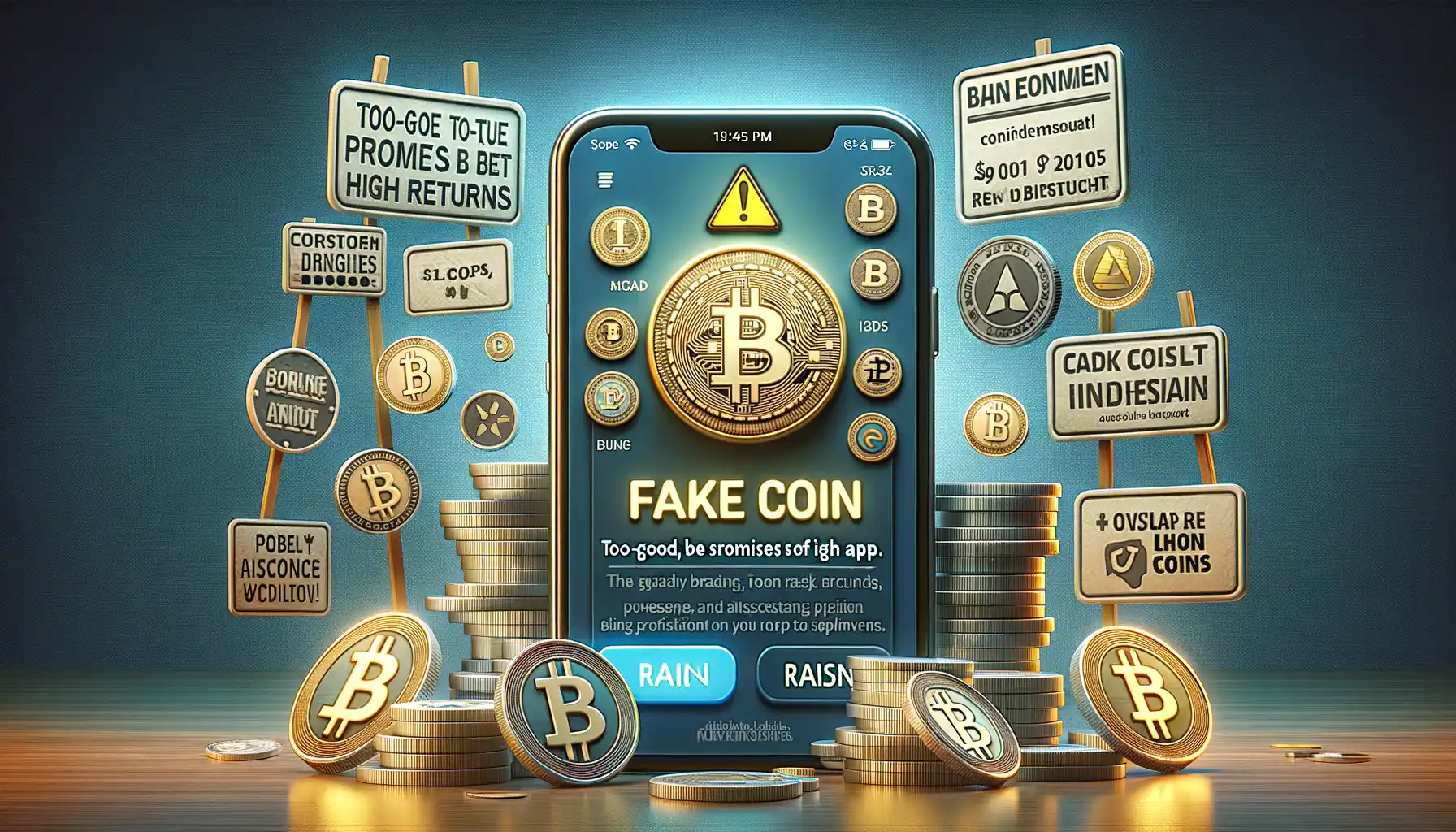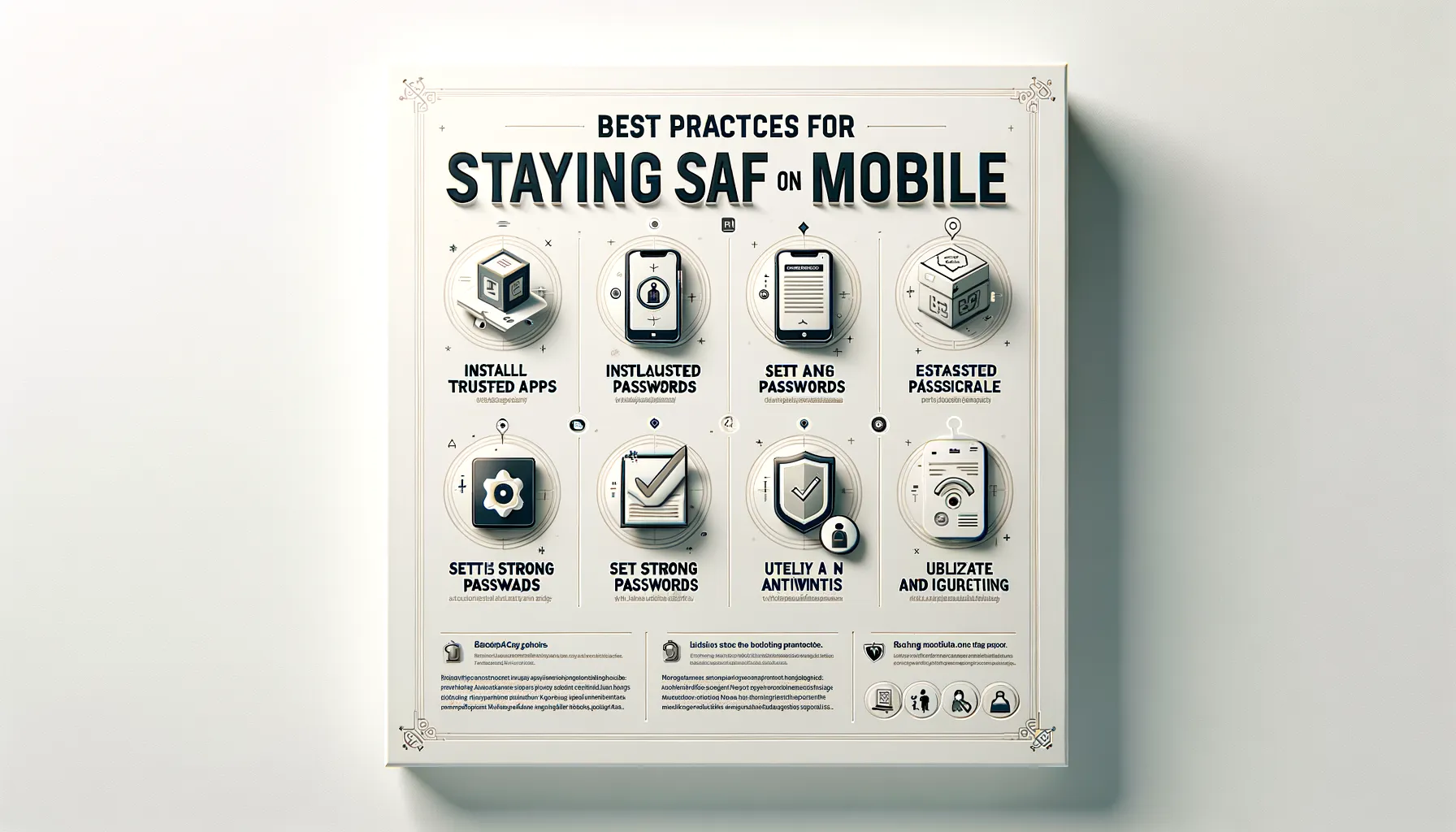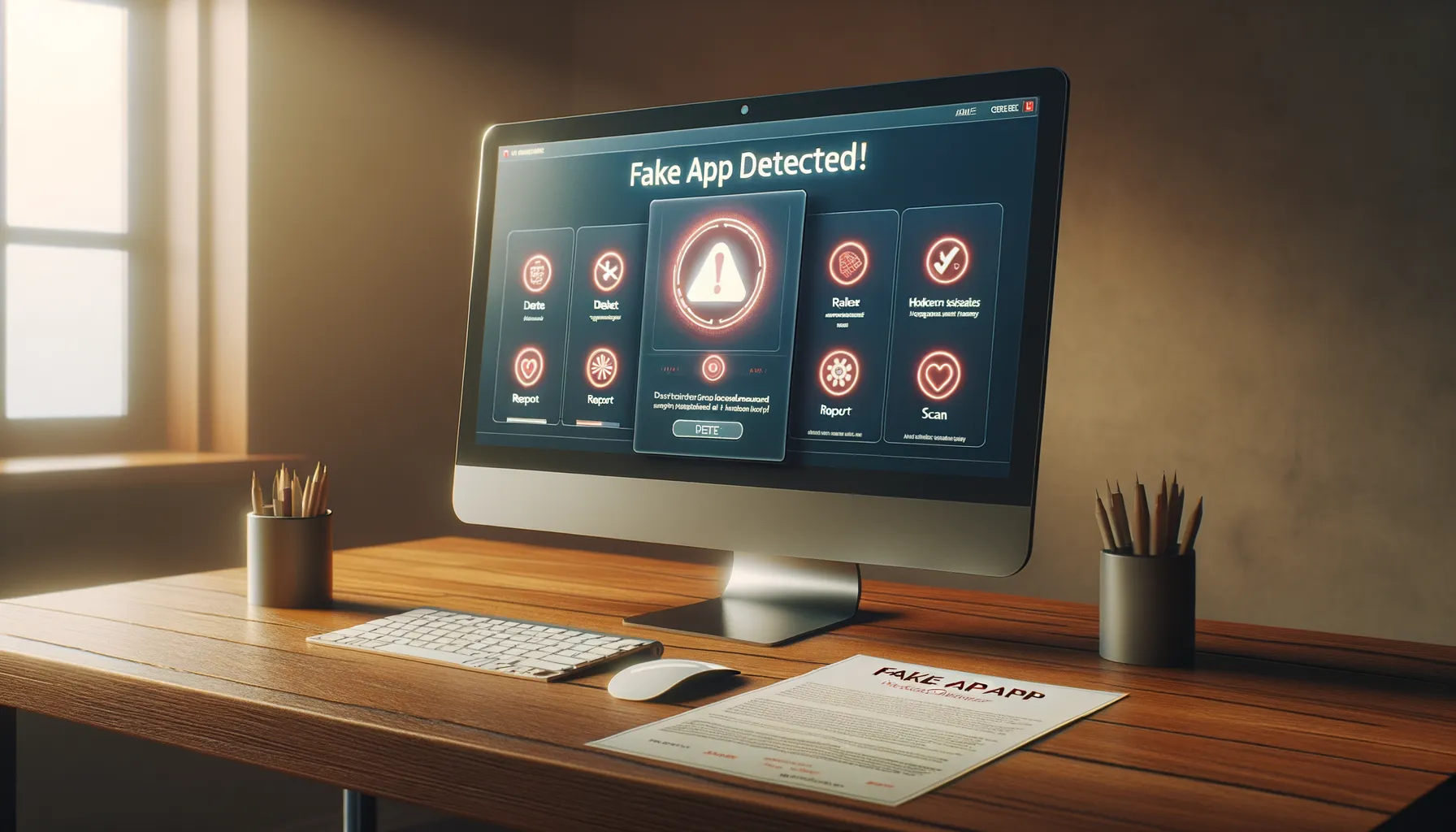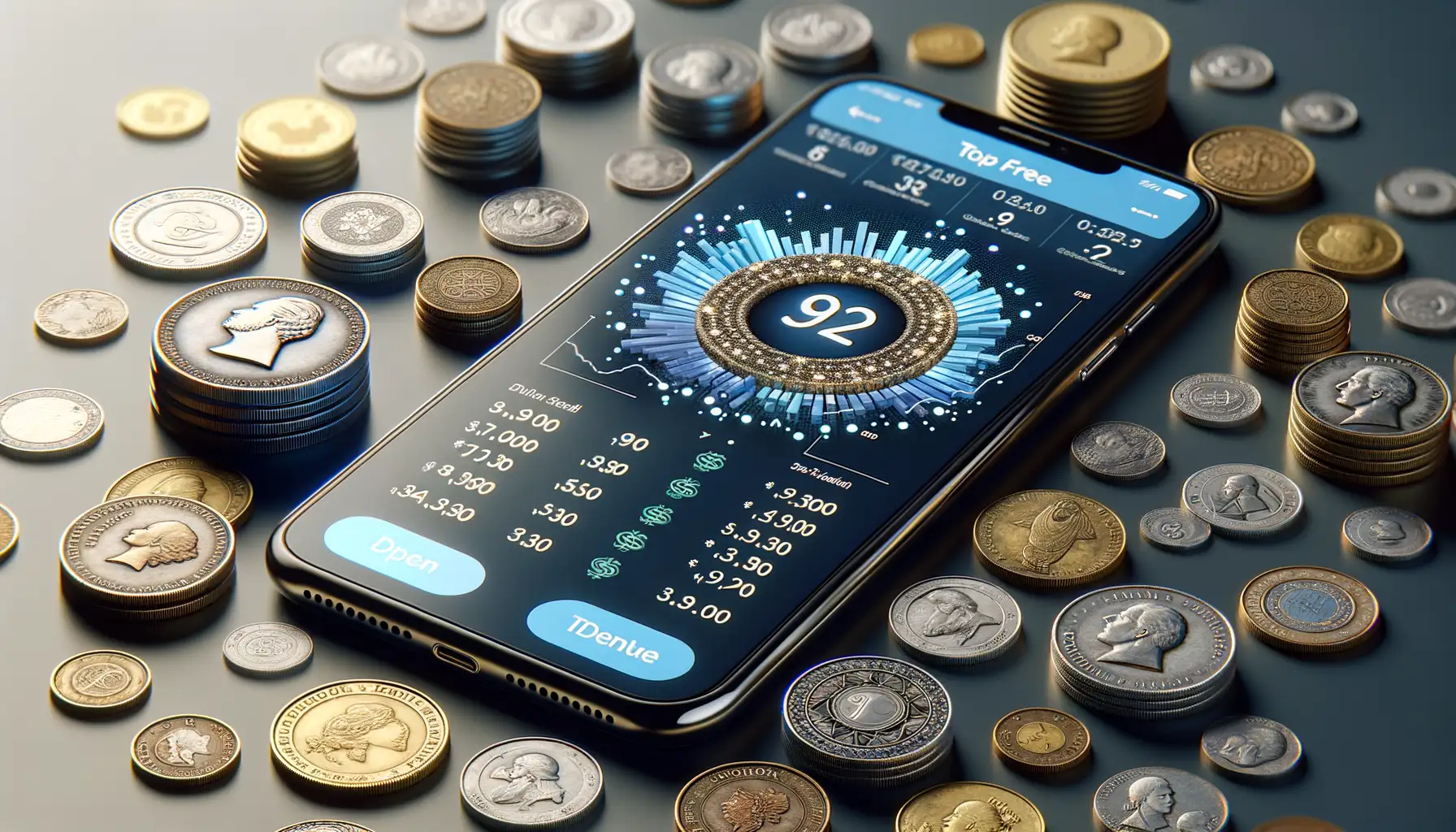Understanding the Risks of Fake Coin Apps
Why Fake Coin Apps Are More Dangerous Than You Think
When it comes to fake coin apps, the risks aren’t just about losing a couple of bucks; it’s like handing over the keys to your digital life. Imagine downloading what seems like a harmless app to check your crypto wallet, only to realize it’s siphoning funds or stealing sensitive information like your private keys. Yes, it’s that sinister.
Here’s the thing—these apps are sneaky. Some masquerade as legitimate, complete with fancy logos and glowing reviews (often fake ones). However, their true purpose is far more harmful. They might:
- Drain your cryptocurrency funds before you’ve even noticed.
- Harvest personal data, exposing you to identity theft.
- Install malware on your device, putting all your activities at risk.
The Hidden Costs of Falling for a Fake App
It’s not just your money or privacy—they can cost you something much deeper: your peace of mind. Once trust is broken, it’s hard to feel safe using any mobile app again. A common trap? Apps that promise “free coins” or “instant rewards.” It’s tempting, but ask yourself: Would a legitimate company really give away free money that easily? Exactly. Keep your guard up.
Key Signs of a Fake Coin App

Shady Permissions and Fake Promises
Ever gotten that gut feeling—like the app you just downloaded is wearing a mask? Trust it! One of the dead giveaways of a fake coin app is shady, too-good-to-be-true behavior. Picture this: You open the app, and it immediately bombards you with requests for permissions that feel… unnecessary. Why does a supposed coin wallet need access to your camera or contacts? If it’s asking for everything but your mother’s maiden name, that’s a neon-red flag.
And let’s talk promises. Real apps don’t flash glowing banners saying things like “Get free crypto instantly!” or “Earn 10x your money today!” Fake apps love playing on excitement and greed, but in reality, they’re spinning a trap.
Dodgy Reviews and Misleading Logos
Here’s another trick fake apps pull: mishmash marketing. Their logo might look eerily similar to a legit platform—like a copy-paste job with slightly off colors or fuzzy edges. That’s their lazy attempt to reel you in.
And reviews? Oh, they’re crafted theater. A quick scroll might reveal a handful of suspiciously perfect 5-star ratings (“Best app ever!!”) mixed with scathing 1-stars warning others it’s a scam. Spot the inconsistency in tone? That’s your clue.
- Check usernames: Are they random, like “CryptoLover1234”?
- Notice patterns: Do the positive reviews sound… robotic?
Be cautious—apps may be digital, but the dangers lurking behind them are all too real.
Steps to Verify the Legitimacy of a Coin App

Digging Deeper into Credibility
Feeling suspicious about a coin app? Trust that little voice in your head—it’s time to play detective. Start by visiting the app developer’s profile on the app store. Is it packed with legitimate apps, or does it look like they’re just tossing spaghetti at the wall? Then, hit up their official website or social media. If you’re greeted with broken links, sparse content, or outdated posts, that’s your first red flag waving proudly.
Reviews, too, are like breadcrumbs. Glowing, generic reviews? They’re probably as fake as a three-dollar bill. Pay attention to detailed, balanced reviews from real users instead. And here’s the kicker: don’t just skim. A seemingly five-star app can have hidden one-star warnings buried below.
Your Quick Checklist for Verifying Coin Apps
- Check if the app is available on trusted platforms like Google Play or Apple’s App Store.
- Does the app request unnecessary permissions (like accessing your contacts)? That’s a no-go!
- Verify if the app is linked to a well-known website—double-check the domain name for sneaky misspellings.
- Search the app online with keywords like “scam” or “reviews“. You’d be surprised what comes up!
Best Practices for Staying Safe on Mobile

Protect Your Personal Information Like a Vault
Your mobile phone is like the key to your digital vault. It holds your precious contacts, apps, and financial details. To keep that vault locked tight, start with some basics. Always download apps from official stores like Google Play or the Apple App Store. But remember, even official stores aren’t foolproof! Double-check the app developer’s name—it’s like verifying the sender on an important package.
And hey, ever heard of permissions creep? Before you tap “Accept,” think: does a crypto wallet app really need access to your camera or location? If it doesn’t make sense, don’t grant it. Limiting app permissions is like drawing a clear line between personal info and nosy apps.
Regular Habits That Save You Headaches
Developing safe habits for mobile use is like learning to lock your front door without thinking—simple yet life-saving. Here’s what I swear by:
- Use two-factor authentication (2FA): It’s like adding a second lock to your account.
- Stay updated: Outdated apps are like leaving windows open for cyber thieves. Update them regularly!
- Install antivirus software: Think of it as your bodyguard against sneaky malware.
Finally, trust your gut. If something feels off—sketchy reviews, weird spelling errors, or overly generous promises—skip it. The best defense? A healthy dose of skepticism.
What to Do If You’ve Downloaded a Fake App

Recognizing the Problem (and Staying Calm!)
First things first: *breathe*. Downloading a fake app happens to the best of us. The good news? You can absolutely fix this with a few smart moves. When you suspect you’ve downloaded a counterfeit coin app, it’s time to act swiftly but methodically. Think of it like finding an intruder in your digital home—you don’t panic; you secure the doors!
Step #1: Immediately disconnect your device from the internet. This will prevent the app from transmitting sensitive information or downloading additional malicious components.
Step #2: Uninstall the app immediately. Go to your app settings, locate the suspicious app, and delete it like throwing out old leftovers—don’t let it linger!
Minimizing Damage
Don’t stop at uninstalling. Reinforce your defenses:
- Run a trusted antivirus scan on your device to check for lingering malware.
- Change the passwords of any accounts linked to your mobile wallet or banking apps.
- Monitor your financial activity closely—look for unauthorized transactions like a hawk eying its prey.
Finally, report the app to the official app store. It’s like alerting your neighbors after spotting a scammer; together, we create a safer community!


